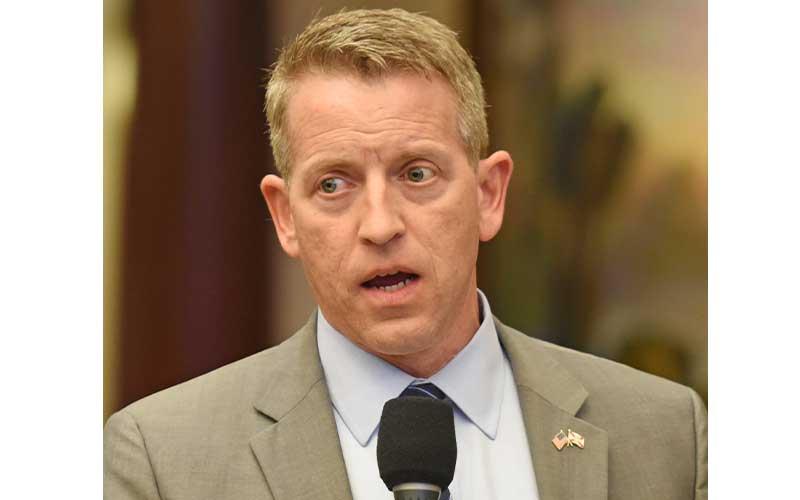News Service of Florida
The Florida House on Thursday began moving forward with a plan to restrict minors’ use of social media, with House Speaker Paul Renner saying that the sites are “highly addictive and also highly damaging” to youths.
The House Regulatory Reform and Economic Development Subcommittee approved the measure, (HB 1), in a 13-1 vote.
In part, the bill would prohibit social-media companies from allowing minors under the age of 16 to create new accounts on the platforms. For existing accounts, the bill would require that social-media companies terminate any account that is “reasonably known by the social media platform to be held by a minor” younger than 16.
The companies would have to provide a minimum of 90 days for account holders to dispute a termination by verifying their age.
Rep. Tyler Sirois, R-Merritt Island, said that social-media is among Florida families’ most pressing issues.
“I would suspect that if you asked parents across our state what the number one challenge is, what the number one issue is, facing the wellbeing and health of their child, social media would be one of the primary concerns,” Sirois said.
Rep. Ashley Gantt, D-Miami, asked Sirois whether there would be an option under the measure for parents to consent to their minor child under 16 years old to have an account. Sirois replied that there would be no parental-consent option.
“For us to look at a parental consent option … it’s our thinking that that would be fuel on the fire. In essence that would continue to expand this notion of kids comparing themselves against one another,” Sirois said. “But this time, instead of it just being a matter of the content that they’re seeing and posting and responding to one another with, it actually becomes, who is able to be on there?”
Renner, R-Palm Coast, has made the proposal a priority for the 2024 legislative session that kicked off Tuesday, as demonstrated by the bill's designation as HB 1.
During a press conference earlier Thursday, Renner said the measure expands on 2023 laws that prohibited students from using cell phones during class time and curtailed the use of the social-media platform TikTok on school grounds.
Renner told reporters that, similar to opioids and tobacco, social-media sites are designed to be addictive.
“There are many, many things that we all agree that children of a certain age should not do, whether it’s smoking cigarettes or alcohol or drugs and so forth that we don’t allow them to do until they’re 18 or in some cases 21,” he said.
The measure also would impose a slew of other requirements on social-media companies.
The companies would be required to use “reasonable age verification methods to verify the age of each account holder on the social media platform at the time a new account is created.” People wishing to create an account who do not verify their age would be denied access.
For users who are between the ages of 16 and 18, companies would have to include a “clearly labeled, conspicuous and readily accessible link” on homepages or login pages that display certain information.
For example, such links would have to include the platforms’ policies, whether the platforms use “addictive design or deceptive pattern features” such as infinite scroll, and the protections that the companies provide against “harmful behaviors, such as bullying, harassment, and threats of violence or self-harm” for users who are younger than 18.
Users younger than age 18 also would have to read and accept a disclaimer before accessing social-media platforms.
“This application may be harmful to your mental health and may use design features that have addictive qualities or present unverified information or that may be manipulated by [insert platform name] or others for your viewing. This application may also collect your personal data to further manipulate your viewable content and may share your personal data with others,” the disclaimer would say.
Jack Campbell, state attorney for the 2nd Judicial Circuit, testified in support of the measure during Thursday’s committee meeting and outlined numerous cases he's handled that arose from incidents linked to social media
“Social media is providing a platform that is leading to a lot of crimes,” the prosecutor said.
Gantt, who was the only member of the panel to vote against the measure, argued that it would take decisions out of the hands of parents.
“It just feels like the government is now telling parents that, ‘No, you don’t really have the ability to make ultimate decisions in your children’s lives,’ particularly when it comes to social media,” Gantt said.
Meanwhile, Florida also has pursued legal action against one of the world’s largest social-media companies.
State Attorney General Ashley Moody in October filed a federal lawsuit alleging, in part, that the parent company of Facebook and Instagram uses "manipulative" features to keep minors hooked on the social-media platforms. Dozens of other states also have sued the company, Meta, which has argued that it has tools to protect minors who use the platforms.
— News Service staff writer Jim Turner contributed to this report.




